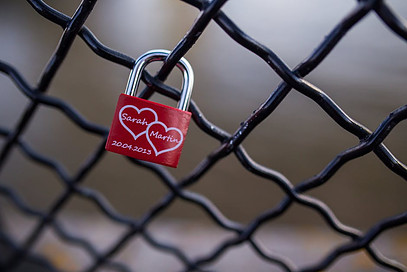The love we know is a disease is love in chains, trade – you give it to me, I give it to you, and we constantly sway, moving “goods” from one side to the other. There is always the same energy in circulation that quickly becomes stagnant. That is why we remain deprived and unfulfilled. We treat love as a means of payment for what our partner has given us or for what we have given him, so we dose it depending on the situation and calculate, manipulate, and deny when the partner does not deserve to be loved. And worst of all, over time, such love is spent as credit is spent.
Love in Chains Is at the End, Expressed as the Behavior of Dog Pets


This happens because, in 2-3 years, we both become two trained puppies who learn which tricks they will use to get the bone and when not. Only the ego feeds there, and the defense mechanisms are trained. When we say that someone has hurt us, he has actually touched our ego, which is why we kill ourselves with grief by reacting like a wounded beast. Where there is love, there is no ego, no defense, no judgment, and alignment with what “us” the partner has done. Everything he does cannot undermine our love for himself because he does nothing to us, and we have nothing to do with it. He feels it very well because, above all, we communicate energetically, and as soon as there is no resistance from our ego and mind, there is no challenge for him to rush to our defensive barriers. In essence, a woman should not imitate a man; whenever she is aggressive, dominant, demonstrate power, and wants to match him, he sees in her an opponent with whom he tries to deal through the demonstration of his power and endurance. As one proverb says, “A man is weakest when a beautiful woman whispers in his ear how strong he is.”
Love in Chains Goes Hand in Hand With Fear
The partner always comes bundled with our fears and targets our Achilles heel, where we are most vulnerable. Just what we are not able to face at all, such as deception – it’s like when we put on a nylon sock for a situation when we need to shine, what we least want at that moment usually happens – suddenly the wire on the sock goes and spoils our joy. We tied the mood to an external factor and chose to be happy only in situations where we avoided the expected disappointment or vice versa; we are unhappy when what we are afraid of comes true. When we fear a form of partner behavior, we constantly live in anticipation of it happening. If we chose the fear of deception, we called her to the door, and jealousy is a house specialty in that regard. Metaphorically speaking, we pull the wire on the sock and emphasize, accelerating our expected disappointment in the partner with jealousy. That’s right; jealousy is a sign that we expect a negative outcome and that we will unknowingly make it happen, and when a partner engages in cheating, we can’t wait to say, “I knew it would happen; I wasn’t jealous in vain.” In fact, jealousy is emitted by a partner who wants to be loved and lacks self-love. Lack of self-love is repulsive to the partner because other beings are attracted to the idea that they could warm themselves to our love, but they leave when they encounter an extinguished flame.
The End of Love Ends With Hatred
With a lack of love, we become a collector of bad experiences, and less and less, we can remember the moments when we were happy. When we express our expectations to our partner based on the foundations of fear, we act as a district tax collector, and he constantly feels that he has a burden on us and that he has some obligation and debt towards us. At one point, he becomes more comfortable and beautiful everywhere than with us. As soon as we appear in his line of sight, he becomes aware of his limitations, like a bird with folded wings. We should let him fly with outstretched wings, let him come back to us every day, and let it be the choice of his free will. For a partner to have a place to return from, he must first leave – distance is needed, and we should not be afraid to allow it; let it be filled with trust and love because it will be his landmark, inner compass. We actually have a very developed mechanism at the beginning of the relationship. Still, our fears stop it over time, so distrust, jealousy, and possessiveness, a desire for possession and control, take the helm. Thus the relationship slowly becomes a cage from which love has long since escaped.